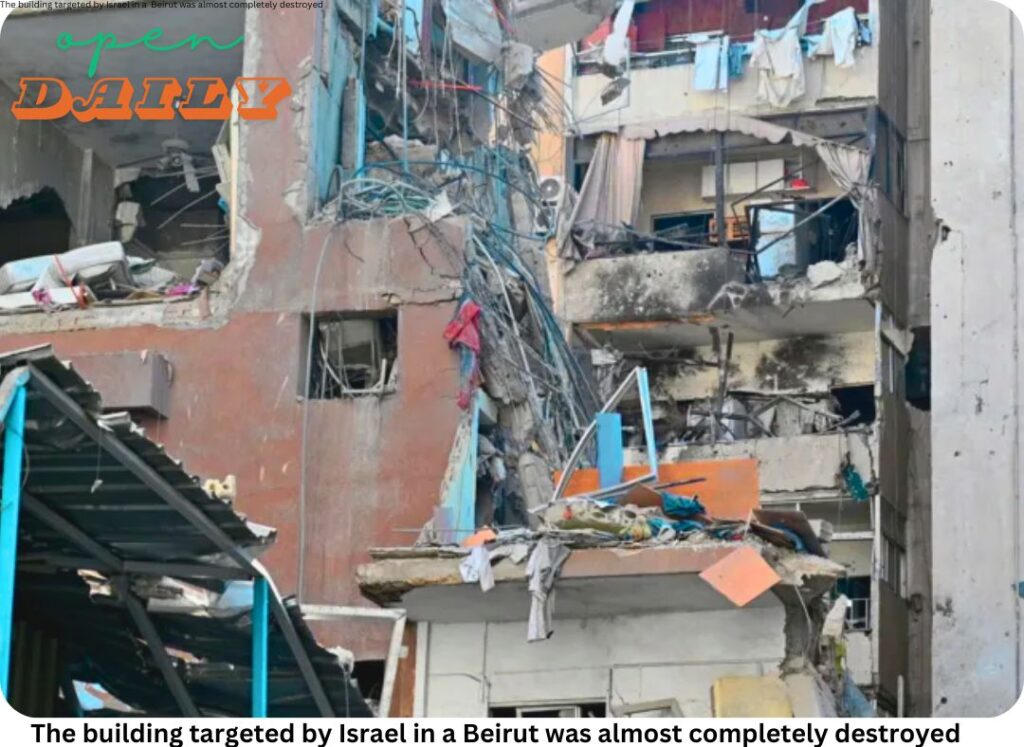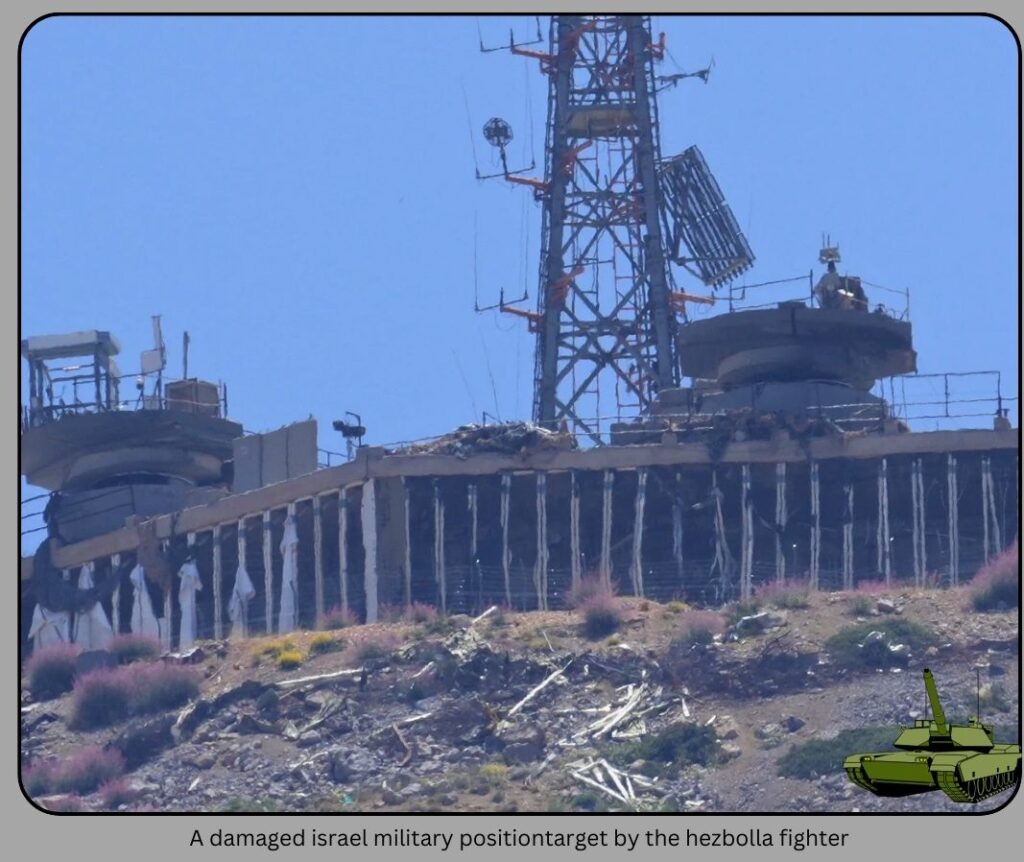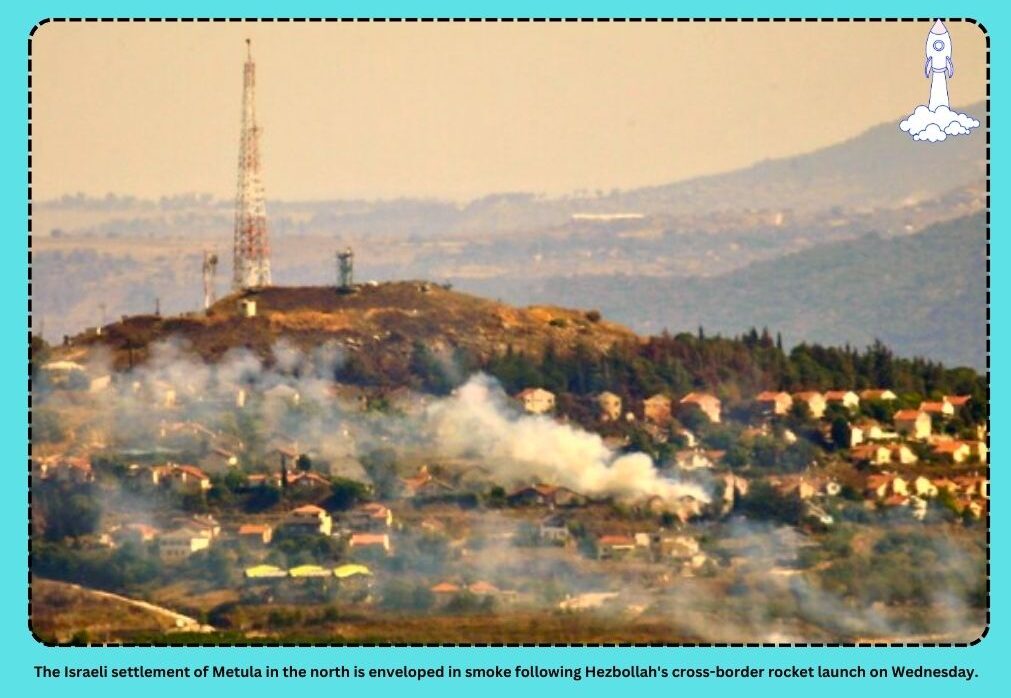U.S. and Israel Tensions: A Delicate Balance in the Middle East
As tensions escalate in the Middle East, the United States and Israel find themselves at a critical juncture, navigating a complex web of diplomatic and military challenges. The situation on the Israel-Lebanon border, particularly with Hezbollah’s involvement, has raised fears of a broader conflict that could engulf the region. Here’s a closer look at the current state of affairs and the delicate balancing act both nations face.
The Crisis on the Israel-Lebanon Border
The recent escalation began when Israel targeted a senior Hezbollah commander, prompting the militant group to retaliate with a barrage of rockets. This exchange has pushed Lebanon to the brink of a full-scale war, with nearly 200,000 people already displaced on both sides of the border. The United States, closely monitoring the situation, has deployed the USS Wasp, an amphibious ship with Marines trained for evacuations, to the Mediterranean Sea. This move underscores the serious concern within the U.S. government about the potential for an all-out conflict.
Hezbollah’s Stance and U.S. Diplomatic Efforts
Hezbollah, an Iranian-backed Lebanese militant group and political party, has made it clear that it will not cease its attacks until there is a permanent cease-fire in Gaza. This condition complicates U.S. efforts to broker peace, as the Biden administration also seeks a broader cease-fire between Israel and Hamas. While U.S. officials acknowledge Hezbollah’s terms, they are exploring alternative ways to de-escalate tensions on the Israel-Lebanon border without necessarily tying it to a cease-fire in Gaza.
Amos Hochstein, a top White House energy adviser, is leading U.S. diplomatic efforts to find a solution. Hochstein’s involvement is notable given his previous success in mediating a maritime agreement between Israel and Lebanon. The U.S. is also seeking assistance from Qatar, which has been involved in negotiations between Israel and Hamas.
The Stakes for Israel and the United States
For Israel, the threat from Hezbollah is significant, with the militant group possessing a sophisticated arsenal and a well-established network of tunnels, making it a formidable adversary. Israeli Defense Minister Yoav Gallant emphasized that while Israel does not seek war, it is prepared for every scenario to protect its citizens. The potential for a ground invasion remains a contentious issue, with analysts warning of the significant risks involved.
The United States faces a delicate situation, balancing its support for Israel with the need to prevent a wider regional conflict. U.S. officials have been urging Israel to avoid actions that could escalate the situation further, while simultaneously preparing for potential military involvement should the conflict expand. This tension between supporting an ally and preventing further violence is a central challenge for the Biden administration.
Hezbollah’s Stance and Demands
Hezbollah, backed by Iran and allied with Hamas, has made it clear that its actions are tied to the situation in Gaza. The group insists that it will not cease its attacks until there is a permanent cease-fire in Gaza. This position has been reiterated by Hezbollah’s leadership, making it challenging for U.S. negotiators to secure a broader agreement that does not include concessions on the Gaza front.

Potential Consequences of a Worsening Conflict
The fear of a more extensive conflict looms large, with several countries, including Germany and Canada, advising their citizens to leave Lebanon. The U.S. has also prepared for potential evacuations, sending the USS Wasp, an amphibious ship equipped with Marines, to the Mediterranean Sea. The possibility of U.S. involvement in the conflict adds another layer of complexity, as Washington seeks to balance its support for Israel with the goal of preventing a broader regional war.
The Role of International Mediators
In addition to U.S. efforts, Qatar has been asked to assist in mediating the situation in Lebanon. The Gulf state has previously played a crucial role in facilitating negotiations between Israel and Hamas. However, the path to de-escalation remains fraught with challenges, as Hezbollah’s conditions for standing down hinge on developments in Gaza.
U.S.-Israeli Relations and Strategic Considerations
Israeli officials, including Defense Minister Yoav Gallant, have expressed a desire to avoid war with Hezbollah but emphasized the country’s readiness to defend itself. The Biden administration has been carefully navigating this delicate situation, urging Israel not to escalate the conflict while also preparing for various contingencies.
Uncertain Path Forward
The situation remains fluid, with both diplomatic and military solutions on the table. As negotiations continue, the world watches anxiously, hoping for a resolution that will prevent further bloodshed and instability in the region. The outcome of these efforts will not only impact the immediate actors involved but could also have significant implications for U.S.-Israel relations and broader Middle Eastern geopolitics.

Looking Forward
As the situation unfolds, the key question remains whether diplomatic efforts can succeed in de-escalating tensions. The possibility of a temporary truce in Gaza, reciprocated by Hezbollah in Lebanon, offers a glimmer of hope. However, the complexities of the situation, including Hezbollah’s demands and the broader geopolitical dynamics, make a lasting resolution uncertain.
The stakes are high, not just for the region but also for global stability. The U.S. and Israel must navigate these treacherous waters carefully, balancing military preparedness with diplomatic finesse to avoid a catastrophic conflict. As the world watches, the outcome of these efforts will have far-reaching implications for the future of the Middle East.
